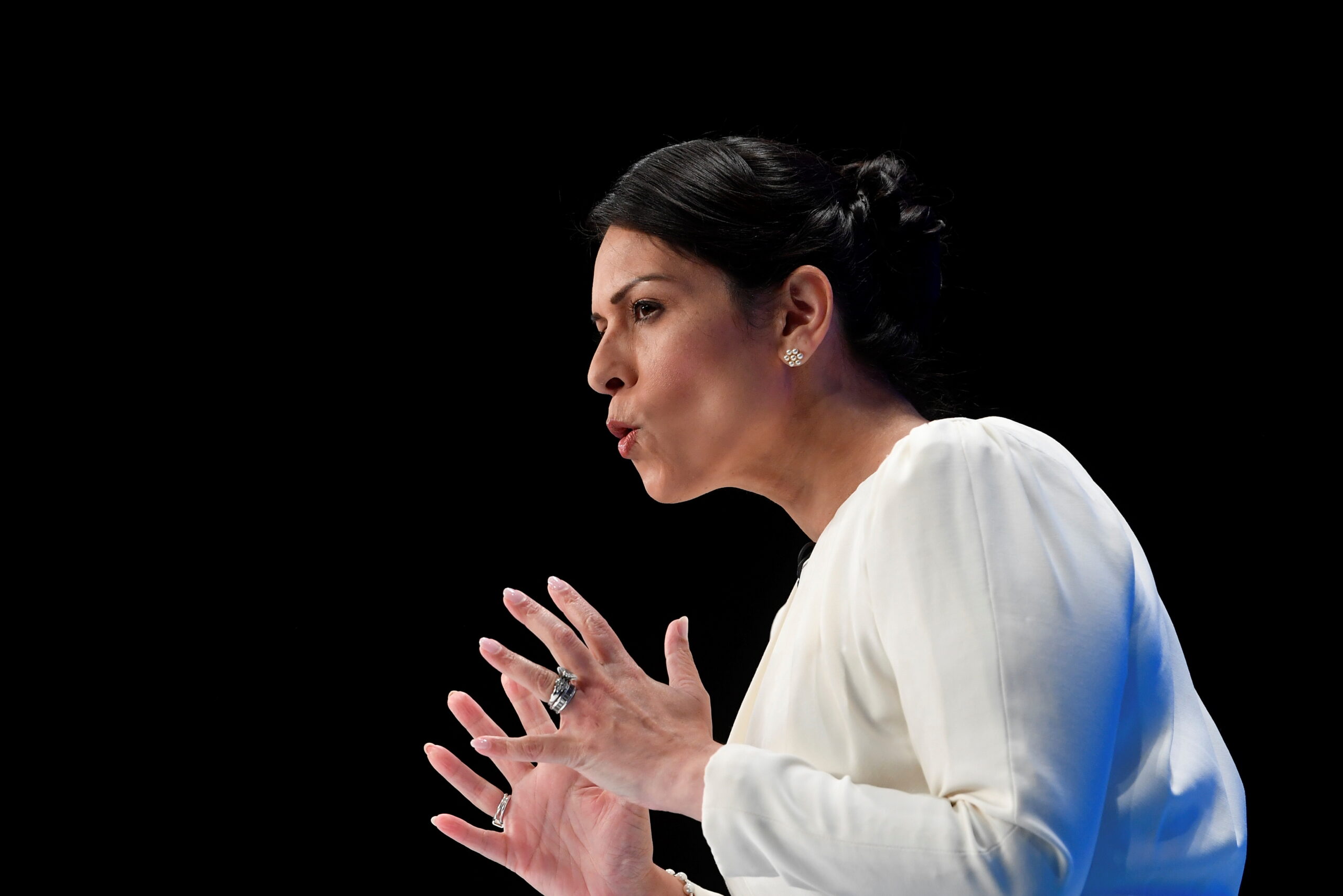Priti Patel Isn’t Just Punishing the Houthis, But All Yemenis
Sanctions are warfare - and it’s time we said so.
by Tiara Ataii
7 April 2022

It’s hard to think of a tool of warfare more misunderstood than sanctions and counter-terrorism regimes. Framed as a form of bloodless humanitarian intervention, sanctions are painted as being in the interests of an oppressed population, holding “dangerous” and “repressive” regimes to account and slowing the “drive towards an arsenal of terror”.
Sanctions, however, are simply a form of economic warfare. In a globalised world where extreme poverty is on the rise, preventing imports, restricting remittances and debilitating humanitarian responses constitute an invisible siege on a whole country. Just because there are no airstrikes or boots on the ground doesn’t mean that there are no human casualties.
This couldn’t be truer than in the case of the Houthis, whom home secretary Priti Patel is pushing to designate as a terrorist group. The timing is dubious. The British public currently backs sanctions against Russia, and it appears Patel is hoping to capitalise on support for such measures in a very different context.
One concern is that such a designation could prevent the Houthis from coming to the negotiating table, threatening a hard-won ceasefire that began last week. But more worryingly, sanctions would in effect be collective punishment of the Yemeni people, prompting 11 major NGOs to write to the Home Office warning against the potential designation.
UK plan to label Houthis as terrorists risks disaster in Yemen, aid bodies warn https://t.co/Aen8uze5l7
— Guardian news (@guardiannews) April 1, 2022
Firstly, Yemenis rely upon imports for 80-90% of their food – a figure that has only increased since Saudi-led coalition airstrikes began targeting agricultural assets in 2015. Hodeidah and Saleef ports, both under Houthi control, process the vast majority of these imports and would be paralysed by a designation of the Houthis as terrorists. Politicians including the UAE ambassador to the US and the UAE permanent representative to the UN who argue sanctions against the Houthis will have no humanitarian impact are feigning ignorance of the dire consequences of a two-week blockade of Hodeidah port in 2017, which led to warnings of likely famine.
Designating the Houthis as a terrorist organisation would also lead to ‘de-risking’, whereby banks, wary of penalties issued for non-compliance with sanctions or counter-terrorism regulations, adopt preventative measures that limit access to finance for anyone with an “at-risk” profile, including humanitarian organisations or civilians. For Yemen, where 10% of people depend on remittances, de-risking – often synonymous with imposing arbitrary obstacles to access to finance with no mechanism to appeal – is nothing short of a death sentence.
Those arguing in favour of sanctions put much faith in the ability of humanitarian exemptions to avert humanitarian crises. But the humanitarian exemption to the sanctions regime upon the Taliban voted in by a UN General Assembly resolution in December 2021, for instance, has done little to curtail human suffering. Indeed, it is expected that more Afghan civilians will die as a result of the US sanctions and freezing of Afghan government assets than have died during two decades of war.
Humanitarian exemptions also rarely lead financial institutions to return to the table. As almost all banks have shunned transactions into Afghanistan, humanitarian organisations have resorted to importing ‘fresh dollar’ in rolls of cash through UN flights every week, relying on informal cash transfer networks – ‘hawala’ – to distribute the money. The hawala, lacking the economies of scale of major institutions, take much higher commissions of an average of 8% per transaction compared to just 2.8% prior to the Taliban takeover. This is all aid that could be going straight to Afghans on the brink of starvation.
This human suffering in Afghanistan was avoidable, as policymakers surely knew that the imposition of sanctions in recent history has had devastating effects. The US designation of Al Shabab as a terrorist organisation in 2008 is considered a major factor in the Somali famine of 2010-12 in which 10% of children and 4.6% of the overall population of Somalia died.
Part of the problem is that once sanctions are imposed, they are hard to reverse. In order to galvanise the mammoth political capital needed for a humanitarian exemption, it takes untold human suffering. This means that by the time that exemptions come, they are often too late. For instance, the UN Security Council voted on an exemption in response to famine warnings in Somalia in 2011 – but more than half of the deaths caused by starvation took place before the declaration was made. If only the most severe forecasts can trigger such exemptions, sanctions will still lead to mass civilian fatalities.
Indeed, there is a cognitive dissonance intrinsic to sanctions: politicians argue they are powerful enough to instigate regime change (as argued in the “maximum pressure” campaign imposed against Iran criticised by many human rights bodies), whilst simultaneously claiming they are too soft to cause a civilian casualty. In reality, sanctions and counter-terrorism regimes justify civilian deaths on the grounds that they potentially save civilian lives – ‘potentially’ because there is growing evidence that sanctions don’t even work.
Patel’s push to designate the Houthis as a terrorist group should prompt us to re-evaluate sanctions in general. Sanctions and counter-terrorism regimes are a geopolitical trolley problem, with the key difference being that there is no guarantee that diverting the direction of the trolley will prevent human rights abuses. What is certain, however, is that such measures lead to untold civilian fatalities. This isn’t a price we should underestimate.
Tiara Sahar Ataii has worked in humanitarian response for the UN and major NGOs in 11 countries.


